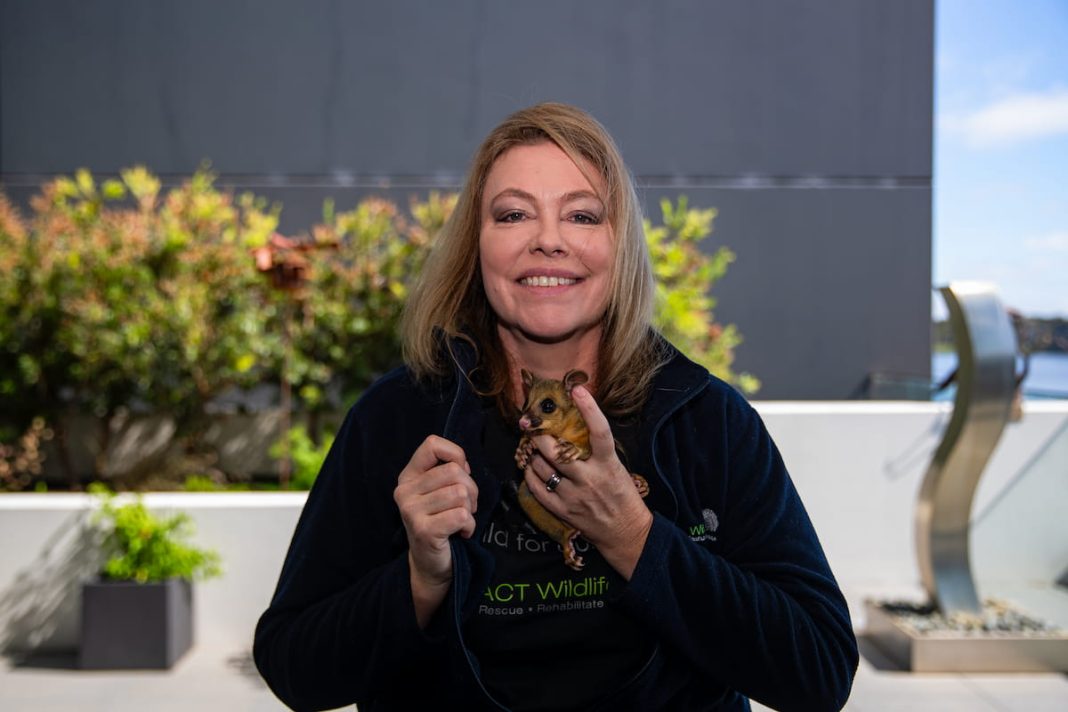Although ACT Wildlife has been in operation for 10 years, many people aren’t aware of the organisation’s dedication to protecting the wildlife of our region. In a bid to raise awareness and funds, they’re hosting a night of fun and great food in the ACT Wildlife Gala(h) Ball at the National Museum of Australia (NMA) on Friday 1 March.
The evening starts with canapes and bubbles on the deck of the NMA accompanied by classical tunes before attendees are treated to a three-course meal and drinks. Entertainment is in abundance with Canberra celebrities Ned and Josh on hosting duties. There will also be a photobooth (tails and ears included), table trivia, and a live auction. Prizes on offer include a night at Jamala Lodge, a $500 Canberra Airport voucher, and possibly a morning tea with baby wombats.
All funds raised from the night of fun go towards continuing the organisation’s mission to rescue, rehabilitate and release injured, sick and orphaned native wildlife.
“Everything from the vet and medical bills to putting up more enclosures for short-term care – anything that supports the animals,” says Tracey McNicol, volunteer and member of organising committee.
Taking six months off work to do something she loved – helping animals – Ms McNicol started volunteering at the zoo before meeting an ACT Wildlife volunteer. She jumped on board and began rescuing and caring for baby birds, and has been volunteering with ACT Wildlife for the past two years.
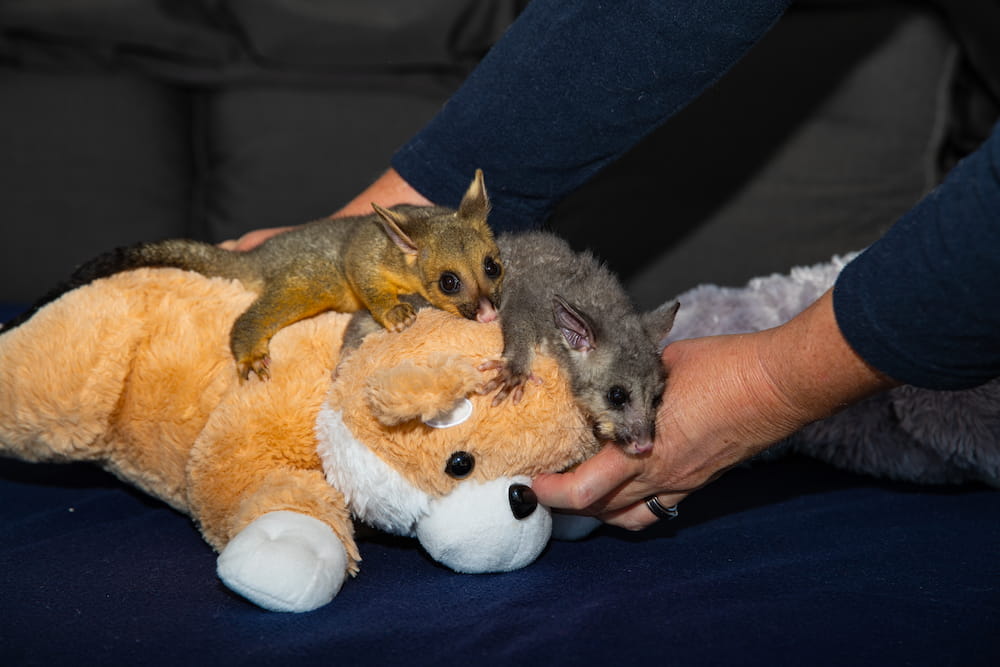
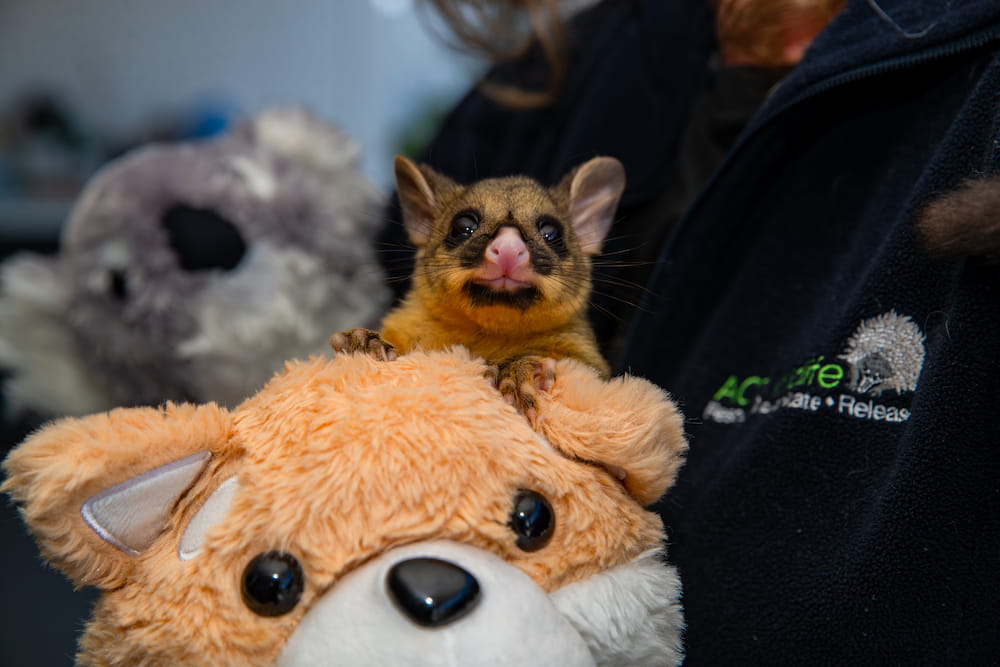
Now that she’s back working fulltime, Ms McNicol is more on the caring side, although she still heads out to rescues after hours. Currently in her care are two orphaned young possums, Lily and Poppy. After birds, Ms McNicol believes possums are their next most common rescued native animal; sometimes accidental, sometimes more nefarious.
“I was called out on a rescue last year down at the creek in Narrabundah, someone had literally just dumped a possum trap into the creek with a possum in it with a baby… When the water came up that possum would have drowned.”
Answering on average 13,000 calls a year, ACT Wildlife rescues lizards which have had run-ins with lawnmowers and dogs, water birds that are caught on hooks, and other native animals that need help. Heading out on rescues, Ms McNicol says people often confused them with WIRES (Wildlife Information, Rescue and Education Service), the NSW equivalent.
“It’s really concerning when someone might call WIRES, they’ll wait on hold, and eventually WIRES will pick up the phone, because they are always really busy, and say ‘Unfortunately, if it’s in the ACT, you need to call ACT Wildlife.’ By this time an animal is potentially lying beside a road bleeding to death and in pain; you just want to get to them through to us as quickly as possible,” she says.
A government grant means ACT Wildlife can employ people to answer the phones during the day Monday to Saturday; the rest of the time, the 24-hour line is operated by volunteers. Ms McNicol says that more support would mean shorter wait times and the sooner they can rescue an injured or orphaned critter.
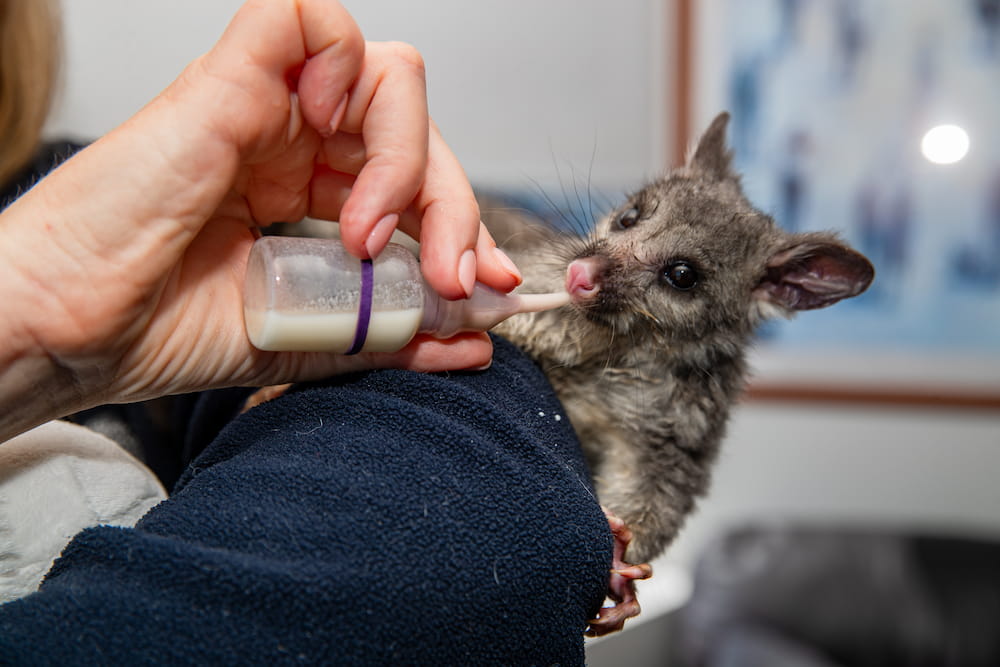
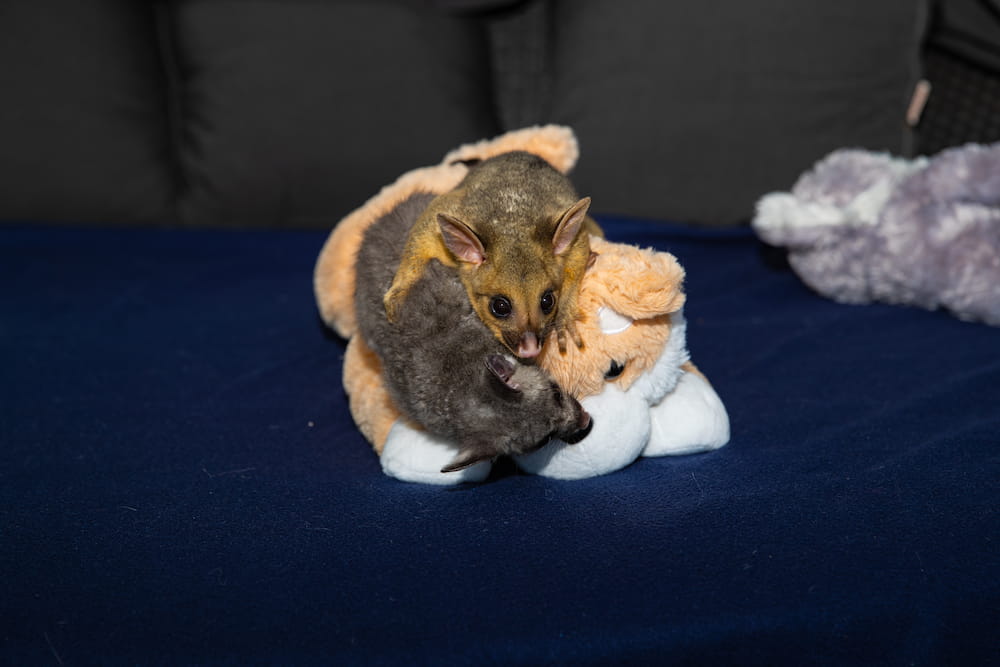
The calls could be providing advice for a baby bird on the ground near its nest or a microbat stuck in a flyscreen to asking people to stay with animals until a rescuer arrives.
Only having a limited number of people being qualified to rescue, Ms McNicol hopes the gala(h) ball might attract some more volunteers, whether it be on phones, rescuing or caring. While the organisation has around 200 paid-up members, she says the majority are not active.
“It kind of fits into your own lifestyle anyway, so if you’ve got an hour free a month, that’s sometimes all that’s necessary to help out.”
Their goal is to release as many of the animals as they can, however, some species, like baby wombats, stay in care for up to 18 months.
“That’s a lot of time, effort and money for somebody to care for this tiny baby and they are treated just like a baby, they need their mother, just like these baby possums,” smiles Ms McNicol.
Before being released into their natural habitat, the babies are introduced to the wild in enclosures. For Poppy and Lily, that will happen when they reach six or seven months.
“We get them used to being in the outdoor world where it could be cold, wet, windy. We wild them up for about three months; they start to get natives [flora] from the area that they might be released in, so they get used to the native branches,” she says.
The release process differs for each species; birds are usually let go near where they were found. Territorial creatures like wombats and possums require a lot of research before finding a release spot where there aren’t any major predators or others of their kind.
“When you’ve been caring for a baby like that for a very long period of time, it can be devastating if one doesn’t survive. You do everything you can to nurture it and make sure that out in the world it will be as successful as possible,” Ms McNicol says.
Heading into the future, ACT Wildlife is hoping to receive government support for road signage with their details in places where wildlife might be injured.
Education is also a high priority; the organisation aims to teach locals about sharing the urban interface with native wildlife. This ranges from the dangers of feeding bread to ducks, swans and other birds, to what to do when a possum takes up residence in your roof.
“We’re the ones who knock down their houses, knock down the trees for the birds and possums, take away the land for the wombats. We’ve taken away their homes, we can hardly complain when they want to start living in our rooftops. They don’t have a home any longer, they’ve got nowhere to go,” Ms McNicol says.
The ACT Wildlife Gala(h) Ball is on Friday 1 March 6.30pm at the National Museum of Australia; actwildlife.net

